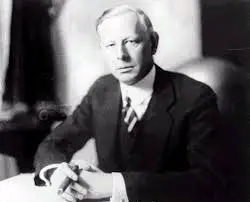#1 Livermore’s wealth was built primarily from big position trades that lasted for weeks or longer. He made his big money holding a trend not scalping or day trading. Which was very difficult in those days with commission costs and speed of execution.
“Money is made by sitting, not trading.”
#2 Livermore pioneered the idea of having big wins and small losses. He held large short positions through both the 1907 and 1929 stock market crashes and let the winners run.
“It was never my thinking that made the big money for me, it was always my sitting.”
#3 The quality of his trade entries is something he did based on price movement. He traded price action not fundamental valuations.
“Buy right, sit tight.”
#4 He liked to see follow through confirmation before he made an entry.
“Do not anticipate and move without market confirmation—being a little late in your trade is your insurance that you are right or wrong.”
#5 He focused on a small watch list to be an expert on their specific price movement.
“{Limit} interest in too many stocks at one time. It is much easier to watch a few than many.”
#6 If he had a stock making higher highs he would hold it until their was a good reason to sell it. He ended up holding stocks that were under accumulation.
“As long as a stock is acting right, and the market is right, do not be in a hurry to take a profit. You know you are right, because if you were not, you would have no profit at all. Let it ride and ride along with it. It may grow into a very large profit, and as long as the “action of the market does not give you any cause to worry,” have the courage of your convictions and stay with it.”
#7 He never added to a losing position.
“It is foolhardy to make a second trade, if your first trade shows you a loss. ” “Never average losses. ” Let that thought be written indelibly upon your mind.”
#8 His rules said to cut losses quickly when wrong and keep losses small. This freed up capital to deploy for better opportunities and avoided big losses.
“Profits always take care of themselves but losses never do. ” The speculator has to insure himself against considerable losses by taking the first small loss. In so doing, he keeps his account in order so that at some future time, when he has a constructive idea, he will be in a position to go into another deal, taking on the same amount of stock as he had when he was wrong.”
#9 He knew his best trades were winners right from the start.
“Experience has proved to me that the real money made in speculating has been: “IN COMMITMENTS IN A STOCK OR COMMODITY SHOWING A PROFIT RIGHT FROM THE START. ”
#10 Jesse Livermore did not trade unless the market presented him with a good opportunity from an entry or risk/reward standpoint.
“There is a time for all things, but I didn’t know it. And that is precisely what beats so many men in Wall Street who are very far from being in the main sucker class. There is the plain fool, who does the wrong thing at all times everywhere, but there is the Wall Street fool, who thinks he must trade all the time. Not many can always have adequate reasons for buying and selling stocks daily – or sufficient knowledge to make his play an intelligent play.”
